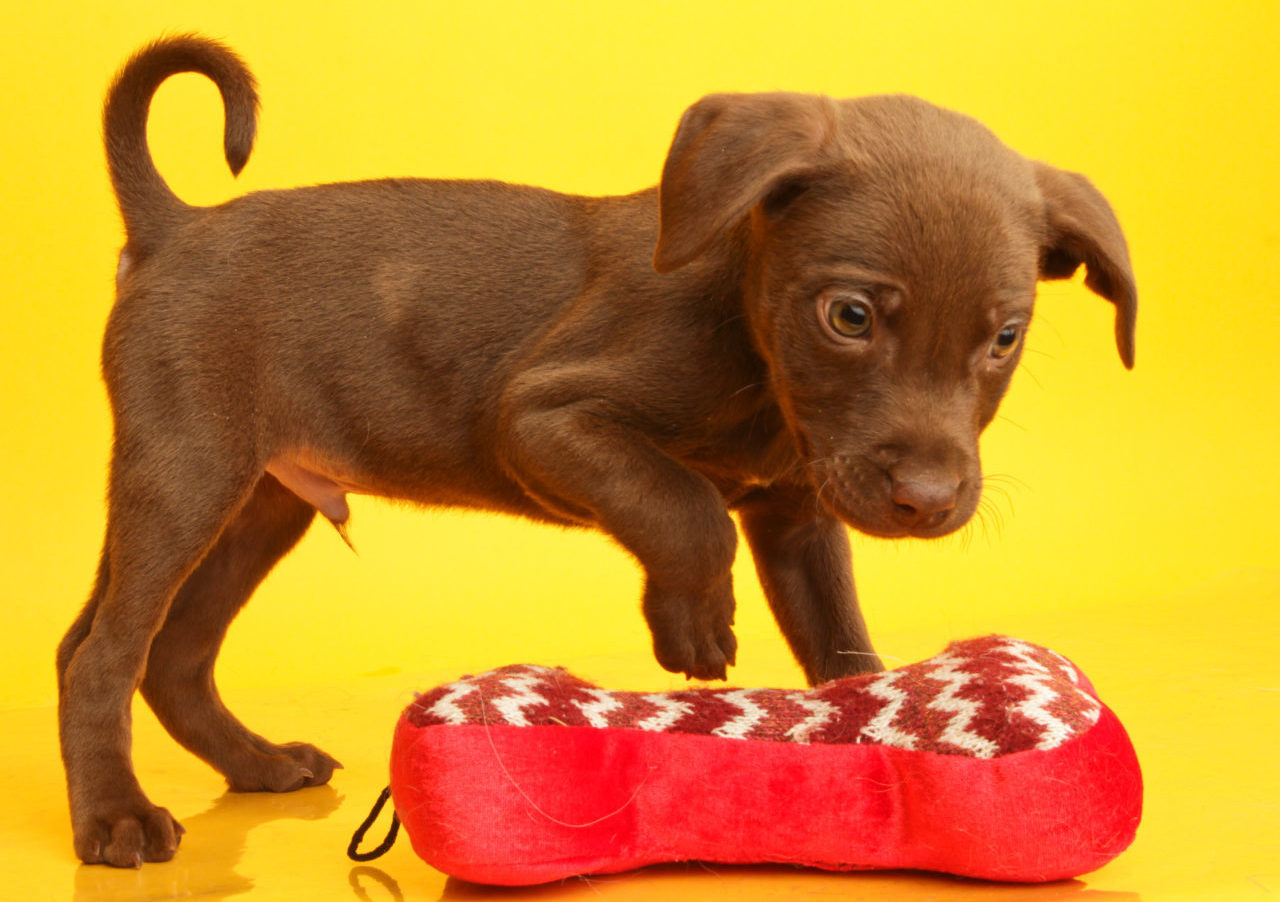To avoid overwhelming you with too much detail I have focused this post on two key areas; bonding and settling. At the end I have listed a few general pointers, which I hope you will find useful.
Bonding
At this early stage the most important thing to focus on is building a strong and trusting bond with your puppy. Unsurprisingly, consistency is the key to building up this bond. Ensure everyone in your household applies the same clear set of rules and training methods to avoid your puppy becoming confused or frustrated. Agree the command words you are going to use in advance, keep it simple and use as few words as possible.
It is essential that you become aware of your own reactions and body language when communicating with your puppy. Your dog will eventually become a master at reading your body language and facial expressions. Calm people, have calm dogs!
Make sure your puppy is used to being handled. If your puppy is hurt you need them to be comfortable being touched. It is easy to train a puppy to like being touched by gently massaging and grooming them regularly.
If your puppy looks at you when you call their name, reward them with a big smile and try to hold eye contact by continuing to praise them. You can also try keeping eye contact while you sing a happy nursery rhyme. Build this up, it is a key way to communicate with your puppy and is the starting point to training recall. Remember to smile and be relaxed. Read my previous post The Look of Love.
Settling
It is important that your puppy learns to settle by themselves as early as possible. So many owners talk of their dogs having separation anxiety and much of this comes from the fact people get puppies and never encourage them to get used to settling and relaxing by themselves. Start my leaving your puppy in a crate in another room for a minute and then build up the time, duration and distance. Your puppy needs to learn that you always come back!
General
- Socialisation means introducing your puppy to people and other dogs that you know well. It also means controlling and monitoring this interaction to avoid scaring or frightening your puppy.
- Your puppy needs a lot of sleep, on average two out of every three hours!
- Be careful not to over exercise your puppy, their joints are still forming. Approximately 5 minutes (per day) for every month of age is a good starting point.
- To teach your puppy something new, you need to practice each exercise in 17 different locations (yes, this is a scientific number!) sometimes you will find that your puppy may do something at home but not in other any other location.
- Take your puppy on the bus, to busy tube/train stations, near to children’s play grounds, on car journeys and generally expose them in a calm and controlled way to as many different environments as possible.
To make sure you get off on the right start, the best advice I can offer is to enrol in a local puppy class.
Other references:
- The Kennel Club – Good Citizen Dog Training Scheme – puppy foundation assessment which covers most of the areas we focus on within the weekly puppy classes run by Alpha Dog Training.

